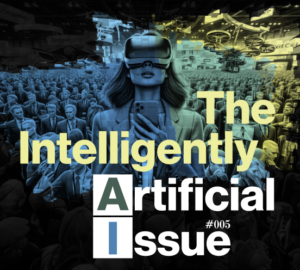Kind of, yes
Kind of, yes
Sometimes, language models act like certain brands always lead in their industries.
“One of the things that people ask me a bunch is whether there are specific ways they should be thinking about optimizing what they do as marketers so that the LLMs have a better sense of their brand or they become the default brand when the LLM or diffusion model imagines a car or a beer … And my answer is that I don’t think it’s anything fundamentally different.
I think basically what you do when you’re doing brand building—building distinct brand assets over time—is probably the best thing that you can do to build up the LLMs’ understanding of the brand."
Sometimes, language models act like certain brands always lead in their industries.
“One of the things that people ask me a bunch is whether there are specific ways they should be thinking about optimizing what they do as marketers so that the LLMs have a better sense of their brand or they become the default brand when the LLM or diffusion model imagines a car or a beer … And my answer is that I don’t think it’s anything fundamentally different.
I think basically what you do when you’re doing brand building—building distinct brand assets over time—is probably the best thing that you can do to build up the LLMs’ understanding of the brand."
No
way
No
way
But...
We should not be confusing LLM and SEO. They are different topics and functions.
“I think if you are trying to make your brand what an LLM responds with when asked for a default beer, then you’re fundamentally misunderstanding what this technology is, and how to leverage it – it’s likely your reference point is 'how do I get the top result in search'.”
Firstly, the LLM is not imagining a car or beer can like we might. It’s developing something based on the prompt that is entered by a user. This matters a lot. It’s then going to modify that depending on what extra knowledge it receives in further commands.
But...
We should not be confusing LLM and SEO. They are different topics and functions.
“I think if you are trying to make your brand what an LLM responds with when asked for a default beer, then you’re fundamentally misunderstanding what this technology is, and how to leverage it – it’s likely your reference point is 'how do I get the top result in search'.”
Firstly, the LLM is not imagining a car or beer can like we might. It’s developing something based on the prompt that is entered by a user. This matters a lot. It’s then going to modify that depending on what extra knowledge it receives in further commands.
Yeah, but…
Sustained marketing strategy can determine what the LLM does and that is important.
“I mostly agree, but on the flip side, there are some brands for whom this is true (they’re the default brand that the LLM 'thinks' of), and the real point is that those brands that have achieved that status did so through many years of good marketing and branding practices. These are the same brands we think of when we think of sneakers and soda: the LLM is just reflecting back this perceptual reality."
Yeah, but…
Sustained marketing strategy can determine what the LLM does and that is important.
“I mostly agree, but on the flip side, there are some brands for whom this is true (they’re the default brand that the LLM 'thinks' of), and the real point is that those brands that have achieved that status did so through many years of good marketing and branding practices. These are the same brands we think of when we think of sneakers and soda: the LLM is just reflecting back this perceptual reality."
I still don’t agree…
This is not the time to be thinking about what an LLM outputs. There are higher priority issues for marketers.
Honestly, this kind of thing should not even be on the radar of a marketer right now – they should be focused on understanding how LLMs can be used as reasoning engines, how knowledge can be leveraged and stacked, how their workflows and lives can be made easier, and marketing made more effective.”
A brand shouldn’t be worrying about being the car that the LLM 'imagines' because it’s essentially creating a mishmash of a combination of everything it has learned about what a car is when it returns the output. It’s the detailed input that goes into prompts that creates the direction – e.g. futuristic car, Ford car, etc. If a brand wants to be mentioned by an LLM, then it needs to be worried about what is inputted to drive the output.
I still don’t agree…
This is not the time to be thinking about what an LLM outputs. There are higher priority issues for marketers.
Honestly, this kind of thing should not even be on the radar of a marketer right now – they should be focused on understanding how LLMs can be used as reasoning engines, how knowledge can be leveraged and stacked, how their workflows and lives can be made easier, and marketing made more effective.”
A brand shouldn’t be worrying about being the car that the LLM 'imagines' because it’s essentially creating a mishmash of a combination of everything it has learned about what a car is when it returns the output. It’s the detailed input that goes into prompts that creates the direction – e.g. futuristic car, Ford car, etc. If a brand wants to be mentioned by an LLM, then it needs to be worried about what is inputted to drive the output.
So in conclusion...
Google has profited immensely from the marketing world’s obsession with its black-box search algorithm. This obsession unlocked a deeper technical understanding of how online search works so brands can carve out opportunities to differentiate. It is therefore logical that markers begin to explore how LLMs respond to prompts. There is an undeniable symmetry in these two technical processes.
One of the interesting takeaways from this discussion is the inherent strength legacy brands will have in this upcoming AI era. They already possess the collateral that initially fed the data set behind the model. It makes us wonder how new brands should think about this upcoming era. Is there anything they can do?


